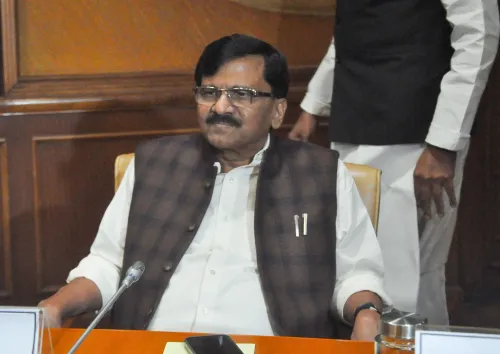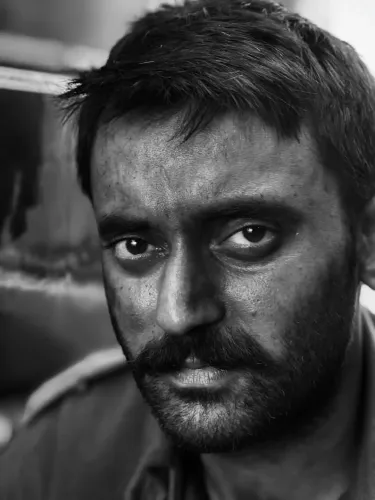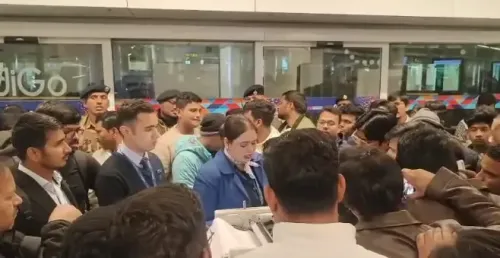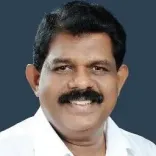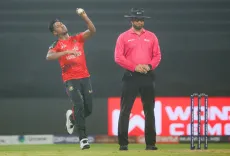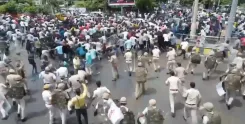What sparked the ongoing violence in PoK with nine fatalities?
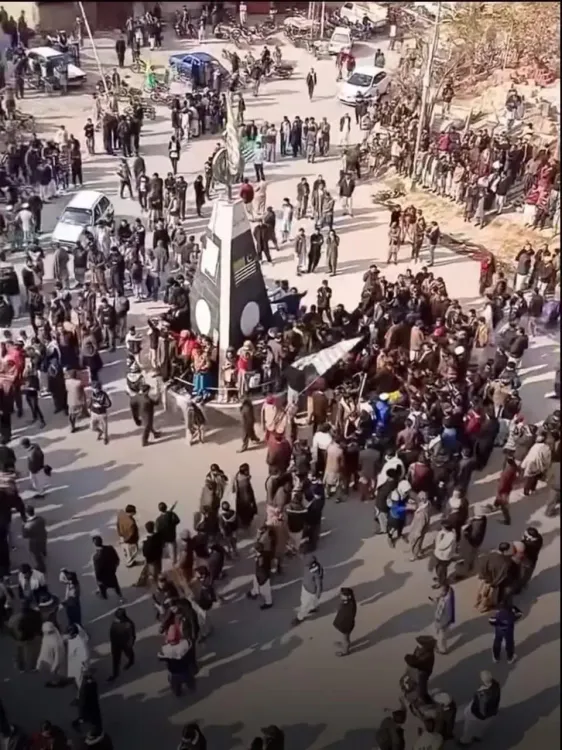
Synopsis
Key Takeaways
- Nine fatalities reported amid ongoing protests in PoK.
- Joint Awami Action Committee (JAAC) demands reforms and improved public services.
- Violence has erupted in multiple areas, including Dhir Kot.
- Government talks with JAAC collapsed over unresolved issues.
- Local leader accuses Pakistan's government of oppression.
Islamabad, Oct 2 (NationPress) Ongoing violent clashes in Pakistan-occupied Kashmir (PoK) have resulted in the deaths of nine individuals, including three police officers, during a strike initiated by the Joint Awami Action Committee (JAAC) aimed at advocating for essential reforms and improved public services in the area, according to local media sources.
As a result of the strike, business and various activities have come to a halt across PoK, compounded by communication disruptions, as reported by the Pakistani daily The Express Tribune on Thursday. Violent incidents have been reported in Dhir Kot and other regions within PoK. Local officials stated that a total of 172 police officers and 50 civilians sustained injuries during these clashes.
The strike, led by JAAC central figure Shaukat Nawaz Mir, has caused a complete standstill in areas such as Muzaffarabad, Mirpur, Poonch, Neelum, Bhimber, and Palandri. Businesses have remained closed, roads have been obstructed, and internet access has been restricted in Muzaffarabad, except for areas bordering Khyber-Pakhtunkhwa.
During an attack by armed members of the JAAC in Dhir Kot, three police personnel lost their lives while nine others were injured, according to reports. The JAAC has initiated the strike to highlight various demands, including the abolition of privileges held by the ruling elite, the removal of 12 assembly seats reserved for refugees, and an end to the quota system.
Additionally, the committee has requested the implementation of free and uniform education throughout the region, complimentary healthcare services, judicial reforms, and the establishment of an international airport.
Officials noted that the government has accepted several demands from the JAAC; however, negotiations broke down due to unresolved issues. Following the collapse of talks, the JAAC has called for ongoing protests and strikes, which have persisted for a third consecutive day.
Business activities in the area have been severely affected, with protestors closing entry points connecting PoK to Pakistan. Reports indicate that intense confrontations between protesters and police forces have frequently escalated into violence.
Meanwhile, Shaukat Nawaz Mir, a prominent leader of the Awami Action Committee in PoK, has accused the government and army of Pakistan of oppressing the local population. He likened their actions to a witch hunt against the people, asserting that the so-called “Azad Kashmir” is far from free.
Mir recalled comments made by Pakistan Army Chief General Asim Munir, who labeled Hindus as “kaafir” before the Pahalgam incident, and criticized the hypocrisy of Pakistan’s leadership, alleging that while they accuse others of human rights violations, they commit similar atrocities in PoK.
He also claimed that the voices of ordinary citizens are being suppressed, the media is being silenced, and questioned the legitimacy of Pakistani forces, who he argues “kill those they claim to represent.”


